Distance yourself from Asharku Bruce Quaye - Elders tell Mahama
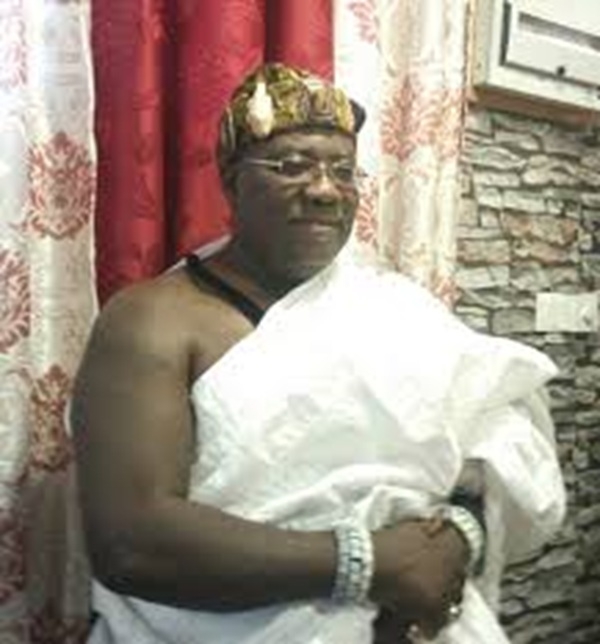 Asharku Bruce Quay
Asharku Bruce Quay
Elders of Ngleshie Alata, Asafoatsemei , Kingmakers of James Town in the Greater Accra Region, have urged President John Dramani Mahama to exercise caution in his public engagements with the self-styled Chief Asharku Bruce Quaye, emphasising the need for President John Mahama to protect his political image and the peace of the country in general.
Prince Asharku Bruce‑Quaye has, in recent times, paraded himself with the title of Paramount Chief of the Ngleshie Alata Traditional Area (James Town, Accra).
Videos of Prince Asharku Bruce‑Quaye’s presence at the Jubilee House during the official visit of the Duke of Edinburgh have sparked fierce backlash from a significant faction of traditional elders, kingmakers, and community leaders.
The elders argue that by inviting or recognising Bruce‑Quaye at official events, political leaders like President Mahama risk legitimising someone whom they view as a usurper.
This could undermine the entire traditional governance structure in Ngleshie Alata.
“By endorsing or engaging with Bruce‑Quaye, political figures risk becoming entangled in a volatile chieftaincy dispute.
The elders warn that this could escalate into social unrest, legal battles, or violence.”
They insisted that encouraging or allowing Bruce‑Quaye to speak or act as a chief in official capacities may erode traditional authority.
The elders want to preserve the sanctity of their chieftaincy system, ensuring that any chief recognised is genuine, chosen through proper custom, and accepted by the people.
Bruce-Quaye had previously been destooled as a sub-chief by his own family, rendering his claim to the paramount stool invalid.
The groups also dismissed Bruce-Quaye’s adoption of the stool title “Wetse Kojo II,” explaining that the original Wetse Kojo Henry George Vanderpuye was installed in 1939, making any legitimate successor the third to bear that title.
These elders argue that his “enstoolment” is illegitimate, has not followed proper customary procedures, and that he is not even from the rightful royal lineage.
Their warning now extends to political figures — including President John Dramani Mahama cautioning them to desist from treating Bruce‑Quaye as a legitimate chief.
Key Arguments from the Elders
The elders from the Ngleshie Alata argue that he does not come from any of the two ruling houses eligible to produce the paramount chief.
Instead, they say he hails from Anumansa (Kweikuma Tsoshishi), which traditionally disqualifies him from the Ngleshie Alata paramountcy.
Lack of Customary Rites
According to the elders, Bruce‑Quaye has not undergone the required customary rites administered by the legitimate kingmakers.
They allege he was “forcefully” installed, including breaking into the stool room (the traditional seat) to perform rites.
Without completing proper ritual processes, they argue, he cannot rightly be considered a customary chief, much less a statutory one.
Stressing that the role of political leaders in traditional affairs is delicate.
And that is when the state seems to validate disputed traditional claims; it can fuel distrust in both political and traditional institutions.
The caution from the elders to President John Mahama is not simply a personal attack on Prince Bruce‑Quaye, it is a serious call grounded in traditional legitimacy, legal process, and community stability.
Recognising someone with contested chieftaincy credentials without addressing the root disputes, they argue, risks undermining both traditional order and political integrity.
“For President John Mahama (or any political actor), the advice is clear: do your due diligence.
Engage with the rightful custodians of chieftaincy, support a transparent resolution, and avoid giving unearned legitimacy to contested claims.” They Stated.
Legal Battles
There are ongoing court cases challenging his claim.
The elders warn that recognising Bruce‑Quaye as a legitimate chief risks division, insecurity, and conflict in the Ngleshie Alata area.
They also condemn the Regional House of Chiefs and even the National House of Chiefs, alleging that their actions favour Bruce‑Quaye illegitimately, fueling tension.
Moreover, they warn companies and political actors to be cautious: dealings with Bruce‑Quaye could be nullified or lead to legal trouble.
Accusations Against the Regional House of Chiefs
The elders heavily criticised the Greater Accra Regional House of Chiefs, accusing it of inducting Bruce-Quaye despite ongoing court disputes pending before both the Accra High Court and the Dodowa Traditional Council Judicial Committees.
They claim the induction amounted to “fraudulent gazetting” and violated established customary and statutory procedures for installing a paramount chief.
According to them, accusations of corruption and procedural bypass at the House of Chiefs raise concerns about the integrity of chieftaincy institutions, and they want those issues investigated.
The elders and youth groups appealed to security agencies and the judiciary to intervene, warning of rising tension.
Allegations of Fraudulent Gazetting & Corruption
There are serious allegations that the National House of Chiefs and the Greater Accra Regional House of Chiefs (GARHC) may have been complicit in “fraudulent gazetting” of Bruce‑Quaye.
Elders accuse the GARHC, especially some of its officials, of bypassing traditional procedures, pushing through his registration despite the ongoing legal and customary disputes.
The Registrar of the GARHC, Mr. Addo Enoch, is specifically named in their criticisms, are some traditional office-holders claim he has disrespected prominent chiefs and undermined proper chieftaincy process.
In their calls for intervention, elders are asking not just the judiciary but also security agencies (IGP, national security) and religious leaders to step in to help de-escalate.
They have appealed directly to President John Dramani Mahama, the Interior Ministry, the IGP, national security agencies, and the Peace Council of Ghana to investigate Bruce-Quaye’s background and ensure stability is preserved.
With several matters still pending before both civil and traditional courts, the Ngleshie Alata chieftaincy dispute remains one of the most protracted and contentious in the Greater Accra Region, drawing national attention due to its implications for traditional governance and the chieftaincy registration process.
Source: Classfmonline.com/Cecil Mensah
Trending News

E/R: Concerned Youth Network of Kwahu Abene appeals to President Mahama to sustain peace amid chieftaincy tensions
13:35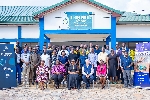
Countering terrorism: Police officers awarded after training-the-trainer INTERPOL I-CT Shield programme
20:35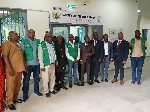
Ghana launches public health emergency operation centre with Africa CDC support
03:20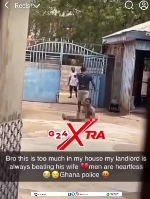
Ofankor domestic violence viral video: John Lamptey's wife breaks her silence, alleges amid wailing Tesano Police Station failed her
23:49
President Mahama tree-planting drive engaging youth to reclaim galamsey-hit land
01:13
GRA shines at IPR Excellence Awards: Wins Best PR Campaign and Best Digital & Social Media Communication Campaign for 2023-2024
08:58
AMA, GAMADA to hold maiden stakeholders’ forum on community’s involvement in James Town Harbour operations
12:59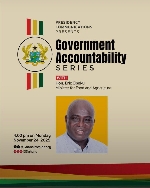
'Government Accountability Series': Agric Minister speaks tomorrow Nov 24
20:44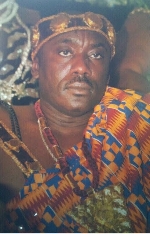
Divisional chief warns public against illegal land acquisition in Dansoman
03:01
Gov’t plan to purchase 6 military and presidential jets misplaced, says Minority
19:56



